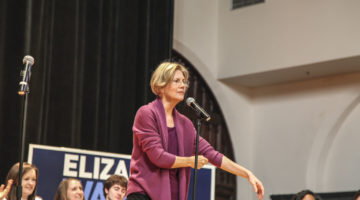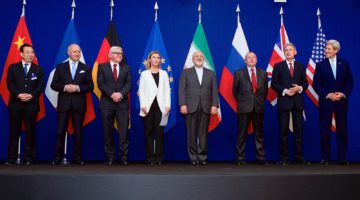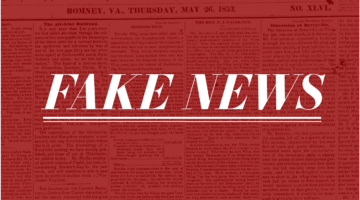In an election where voters will have to decide between two unfavorable candidates, voter anxiety is at an all time high as voters ask themselves the question, how did we get here? On Nov. 8, America will decide who will become the next president after one of the most intense elections the country has ever seen.
“The rest of the world is very concerned with what the results will be of this election,” said Richard Ford, a Pulitzer Prize-winning writer, to a journalism class at the University of Nevada, Reno, on Monday. “These European reporters are being sent over here to America to poll-watch. These reporters usually aren’t sent here; they’re sent where there are fragile democracies. We have a fragile democracy.”
As the world watches, America anticipates the results of the election and looks back at the last year and a half of comic-relief amongst name-calling and scandals.
The primary
Hillary Clinton announced her campaign in April of 2015. Donald Trump announced he was running for president two months later after years of flirting with the idea.
The fight for the Democratic Party nomination was mostly between Clinton and Vermont Sen. Bernie Sanders. Other candidates in the race included Virginia Sen. Jim Webb, Maryland Gov. Martin O’Malley, Harvard law professor Larry Lessig and former Rhode Island Gov. Lincoln Chafee.
The race between Clinton and Sanders after the other candidates dropped out was close, but Clinton quickly became the presumptive nominee as primary voting progressed. She surpassed the required 2,382 Democratic delegate votes by 500, leaving Sanders behind by almost 1,000, according to Politico.
Trump was the front-runner of the Republican Party during the primary season. There were 17 people seeking the nomination including Ted Cruz, Marco Rubio and Jeb Bush. Trump needed 1,237 Republican delegate votes in order to become the presumptive nominee. He clinched over 1,500 votes, beating his closest opponent, Cruz, by nearly 1,000.
The Republican National Convention
The Republican National Convention was held in Cleveland July 18 through 21. There, Trump was officially nominated as the GOP’s presidential candidate.
Three days before the convention started, Trump announced he had chosen Indiana Gov. Mike Pence as his running mate.
Besides anti-Hillary rhetoric, the highlight of the convention was Cruz’s refusal to endorse Trump for president. Many condemned the Texas senator for not supporting his party’s candidate.
Other members of the Republican Party, such as Newt Gingrich and members of Trump’s family, spoke about his competency to be the new leader of the country.
“He draws out the talent and drive in people so that they can achieve their full potential,” said Tiffany Trump of her father at the RNC. “That’s a great quality to have in a father, and better yet in the president of the United States.”
The Democratic National Convention
The Democratic National Convention was held July 25 through 28 in Philadelphia. Clinton accepted her party’s nomination to be the candidate for the presidency.
Clinton had announced Virginia Sen. Tim Kaine immediately after the RNC, and they appeared onstage together to start their campaign.
She had many heavy-hitters endorse her during the convention. The most notable include President Obama, Michelle Obama, Vice President Biden, Sen. Elizabeth Warren and Sen. Sanders.
“There were plenty of moments when Hillary could have decided that this work was too hard, that the price of public service was too high, that she was tired of being picked apart for how she looks or how she talks or even how she laughs,” said Michelle Obama at the DNC. “But here’s the thing: What I admire most about Hillary is that she never buckles under pressure. She never takes the easy way out. And Hillary Clinton has never quit on anything in her life.”
The debates
The first debate was held at Hofstra University in New York on Monday, Sept. 26. Lester Holt of “NBC Nightly News” was the moderator. The discussion centered around Trump’s tax returns that he refused to release at that point in his campaign, the FBI’s investigation into Clinton’s emails on a private server while she was secretary of state and racial issues in America.
The debate broke the records for the most-viewed presidential debate in history, with more than 84 million people tuning in, according to The Wall Street Journal. The most memorable moments came from Trump saying if he were president, he would lock Clinton in jail because of her emails, Trump interrupting Clinton 25 times in the first 26 minutes and Clinton’s shimmy shake in response to Trump saying he had better judgment than his opponent.
The second debate was held on Sunday, Oct. 9, at Washington University in St. Louis. It came after an “Access Hollywood” video was released of the Republican nominee bragging to the TV program’s Billy Bush about how Trump’s fame helps him attract women. Many Republicans started to withdraw their endorsements of Trump after the tape became public. In response, Trump invited women who accused former President Bill Clinton of sexual assault during his presidency to the debate. Anderson Cooper of CNN and Martha Raddatz of ABC co-moderated the debate. The debate was held in a town-hall style, and the candidates took questions from undecided voters onstage concerning behavior, Obamacare and Syrian refugees.
The star of the debate was neither of the candidates but a man onstage in a red sweater, Mr. Ken Bone. Bone asked the candidates about their environmental-friendly energy policies. Soon after, Bone became an internet sensation and was claimed the winner of the debate by CNN.
The last debate was held Wednesday, Oct. 19, at the University of Nevada, Las Vegas. Chris Wallace of Fox News moderated the debate. The debate was defined by Trump saying he would think about accepting the results of the election if he lost. Other memorable comments from Trump were him calling Clinton a “nasty woman” and illegal immigrants “bad hombres.”
The campaign trail
Both candidates have been on the campaign trail tirelessly, traveling the nation to convince voters to get to the polls and check their name. Surrogates for both candidates also hit the campaign trail, especially for the Clinton campaign.
Clinton’s surrogates who have stopped at the University of Nevada, Reno, include Sen. Kaine, Jennifer Garner, Sen. Sanders and Sen. Warren.
Trump has appeared in Reno twice since clinching his party’s nomination. Most recently, Trump held a rally at the Reno-Sparks Convention Center on Saturday, Nov. 5. He was rushed offstage by Secret Service agents when someone yelled “gun” in the crowd. A man holding a “Republicans Against Trump” sign was arrested but was later released after authorities did not find a gun on the man.
Trump came back onstage after the Secret Service allowed him to and said, “Nothing will stop us. We will make America great again!”
The FBI announced Friday, Oct. 28, that it was reopening its investigation into Clinton’s email server due to the surfacing of new emails. Later it was revealed the emails were between Anthony Weiner and his wife, Clinton’s aide.
On Sunday, Nov. 6, the FBI again said it was recommending Clinton not be charged.
The latest poll has Clinton ahead at 45.5 percent and Trump at 42.3 percent, according to Real Clear Politics. The winner needs 270 votes from the Electoral College.












